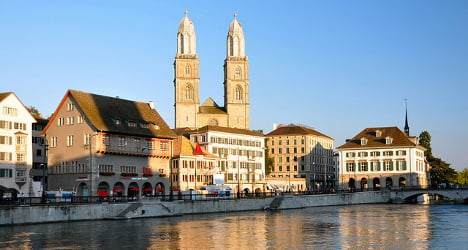The report, carried out by New York-based research and analysis website ValuePenguin, puts Switzerland at the top of a list ranking the safety of 107 countries with accessible data.
The study is based on data gathered in seven topic areas “chosen because of their connectedness to the idea of ‘everyday safety’, but also because they were the most available for as many countries as we could fairly include in the study,” said the report.
Those seven areas comprise population figures, the number of thefts, assaults and traffic deaths, CO2 emission levels, police officers per head of population and life expectancy.
The study used the most recent figures available from sources including the World Bank, the United Nations and the World Health Organization.
The metrics were weighted, with population and CO2 emissions given the least value and assaults and life expectancy the most weighting.
“We decided on the order of weighting using our belief that violent crimes are more worrisome to the average citizen than non-violent crimes, for example,” Andrew Pentis of ValuePenguin told The Local.
“Life expectancy was weighted the most because we believe that metric is perhaps the most well-rounded metric of the bunch.”
According to ValuePenguin’s methodology, Switzerland came out on top, followed by Singapore, Spain, Japan and Cyprus.
In publishing its report, ValuePenguin drew attention to Switzerland’s low reported violent crime rate – seven per 100,000 people – and its compulsory health insurance system.
Being based on “everyday safety”, the methodology did not account for the Swiss propensity for high-risk sports, such as base-jumping, off-piste skiing and mountaineering, which claim lives every year.
“Switzerland earned high marks in the categories we analyzed, which include data on crime, police, air quality and life expectancy,” said Pentis.
“We did not account for dangerous/extreme sports in our study, but we did include life expectancy, which captures some of the risk there.”
Neither did the survey factor in current political situations or conflict, throwing up some surprising results.
Syria, for example, placed at number 55, making it safer than countries including Latvia (66), Lithuania (71) and Andorra (98).
Pentis told The Local: “Cyprus made it all the way to number five despite being a country which has literally been divided into two for decades. Cyprus' talks of reunification had zero bearing on its ranking. We only focused on the safety within the countries themselves.”
“I can understand that some readers may be surprised to see one country, perhaps their own, ranked higher or lower than maybe they expected,” he added.
“This is a natural outcome of an overview study like this one.”



 Please whitelist us to continue reading.
Please whitelist us to continue reading.
Member comments